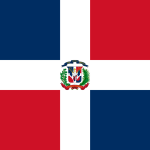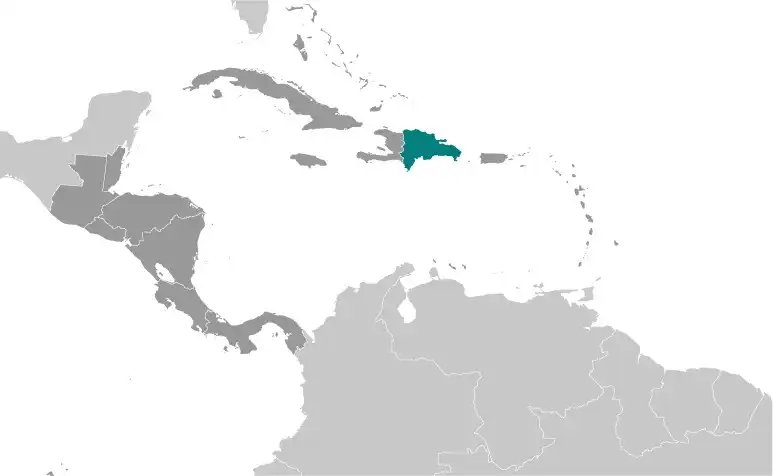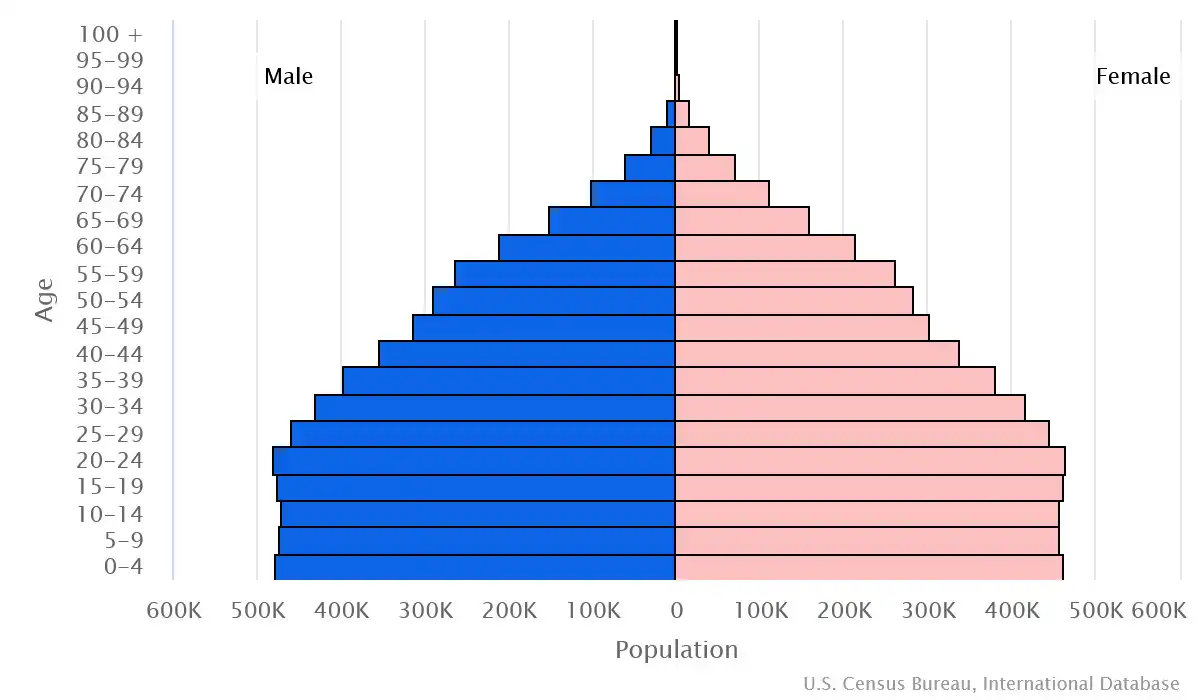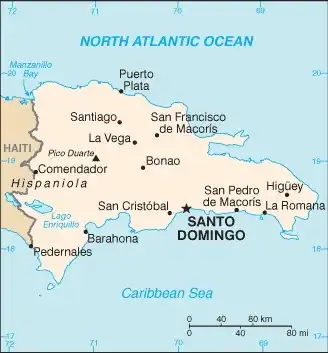
Dominican Republic
Veröffentlicht: 18. June 2022 - Letztes Update: 28. February 2025
Country Data Dashboard

Population
10,815,857
Growth: 0.76% (2024 est.)
GDP
$121.444 billion
(2023 est.)
Area
48,670 sq km
| Government type: | presidential republic |
| Capital: | Santo Domingo |
| Languages: | Spanish (official) |
People & Society
Ethnicity (2014 est.)
Religion (2023 est.)
Age structure

Economy
Economic overview
surging middle-income tourism, construction, mining, and telecommunications OECS economy; major foreign US direct investment and free-trade zones; developing local financial markets; improving debt management; declining poverty
Real GDP (purchasing power parity) in Billion $
Real GDP per capita in $
Exports & Imports in billion $
Top 5 Import Partner in 2022 (69%)
Top 5 Import Commodities in 2022
- refined petroleum ⛽
- natural gas 💨
- cars 🚗
- plastic products ♻️
- crude petroleum 🛢️
Top 5 Export Partner in 2022 (69%)
Top 5 Export Commodities in 2022
- medical instruments ⚕️
- gold 💰
- tobacco 🚬
- power equipment 🔋
- garments 👕
Geography
Map

Area
Natural resources
- nickel 🪙
- bauxite 🪨
- gold 💰
- silver 🪙
- arable land 🌱
Climate
tropical maritime; little seasonal temperature variation; seasonal variation in rainfall
Historical Background Information
The Taino -- indigenous inhabitants of Hispaniola prior to the arrival of Europeans -- divided the island now known as the Dominican Republic and Haiti into five chiefdoms and territories. Christopher COLUMBUS explored and claimed the island on his first voyage in 1492; it became a springboard for Spanish conquest of the Caribbean and the American mainland. In 1697, Spain recognized French dominion over the western third of the island, which in 1804 became Haiti. The remainder of the island, by then known as Santo Domingo, sought to gain its own independence in 1821, but the Haitians conquered and ruled it for 22 years; it finally attained independence as the Dominican Republic in 1844. In 1861, the Dominicans voluntarily returned to the Spanish Empire, but two years later, they launched a war that restored independence in 1865.
A legacy of unsettled and mostly non-representative rule followed, capped by the dictatorship of Rafael Leonidas TRUJILLO from 1930 to 1961. Juan BOSCH was elected president in 1962 but was deposed in a military coup in 1963. In 1965, the US led an intervention in the midst of a civil war sparked by an uprising to restore BOSCH. In 1966, Joaquin BALAGUER defeated BOSCH in the presidential election. BALAGUER maintained a tight grip on power for most of the next 30 years, until international reaction to flawed elections forced him to curtail his term in 1996. Since then, regular competitive elections have been held.
A legacy of unsettled and mostly non-representative rule followed, capped by the dictatorship of Rafael Leonidas TRUJILLO from 1930 to 1961. Juan BOSCH was elected president in 1962 but was deposed in a military coup in 1963. In 1965, the US led an intervention in the midst of a civil war sparked by an uprising to restore BOSCH. In 1966, Joaquin BALAGUER defeated BOSCH in the presidential election. BALAGUER maintained a tight grip on power for most of the next 30 years, until international reaction to flawed elections forced him to curtail his term in 1996. Since then, regular competitive elections have been held.
